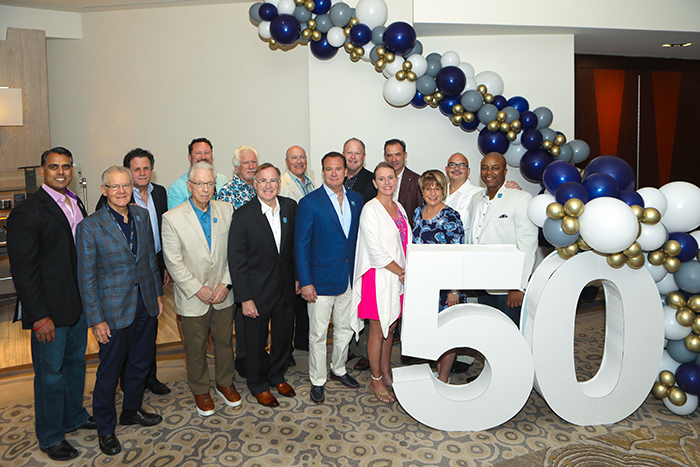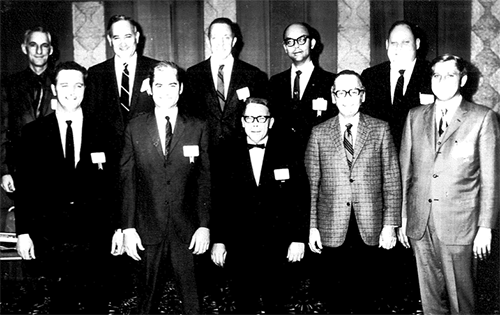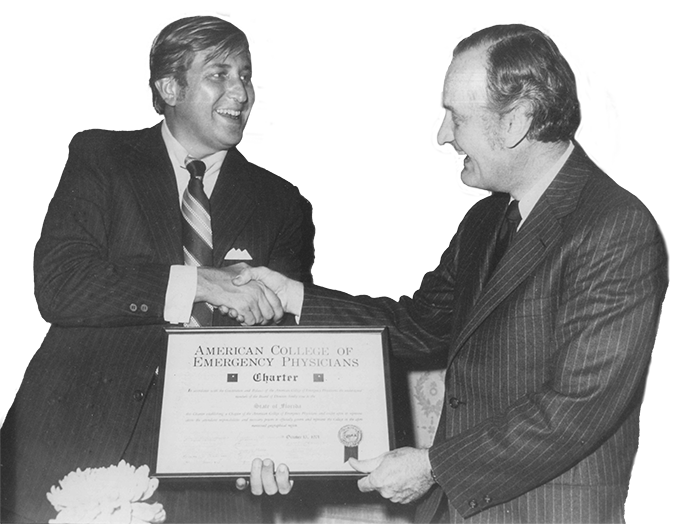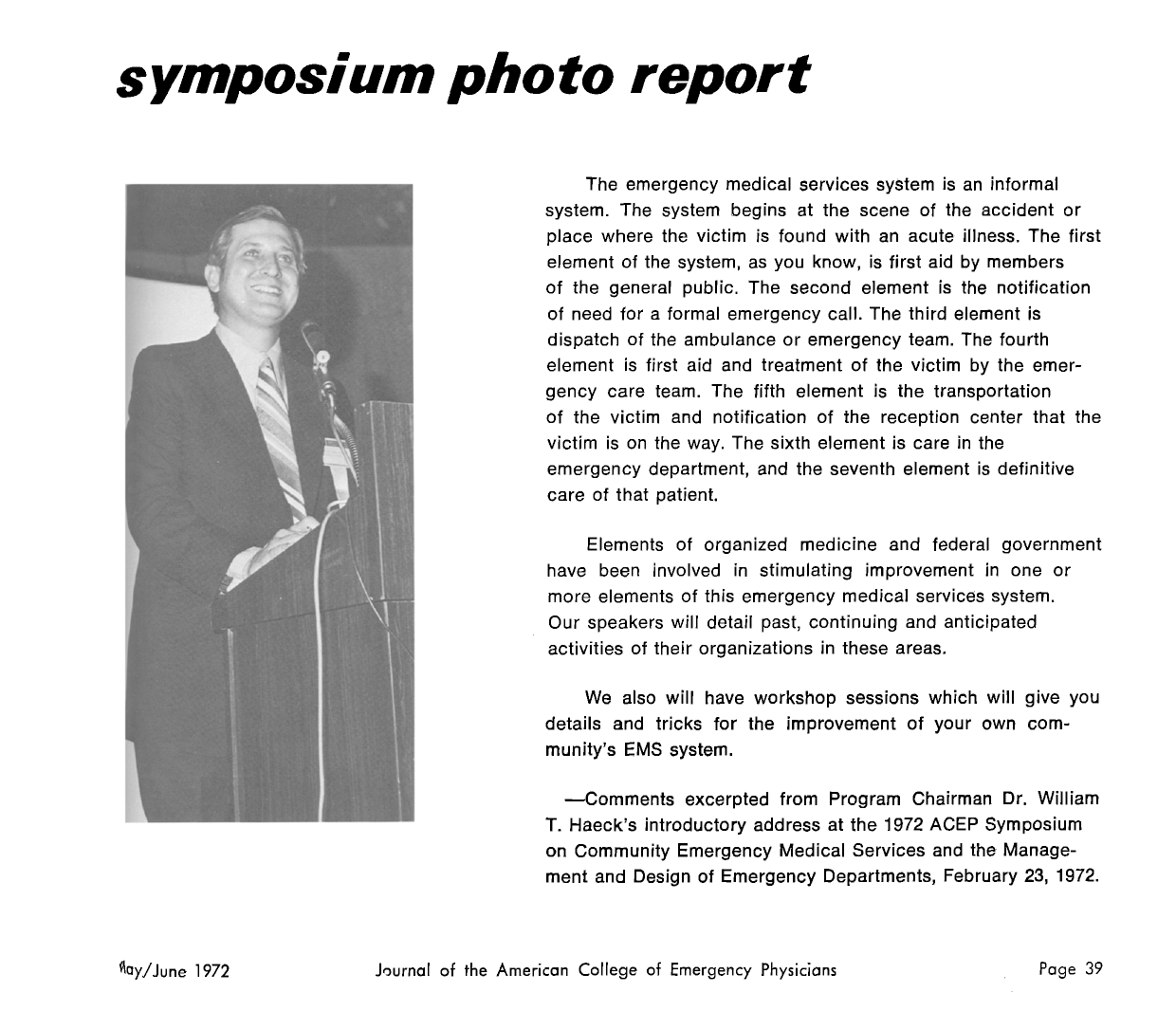50 Years of Emergency Medicine in Florida
In Celebration of FCEP’s 50th Anniversary Year:
Founded October 15, 1971
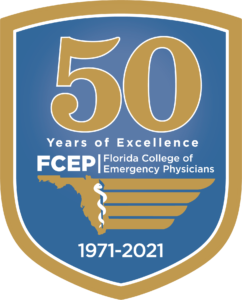
The Early Days
“Emergency departments used to be, you know, emergency rooms. Literally, that’s what they called them back then. When I was growing up, you went to the hospital… well, actually, you called your family doctor and he said, “go to the back door there on the street and ring the bell. Tell the nurse to call me once you’re there and I’ll come and stitch you up.” – Frederic Wurtzel (FCEP President 1978-79)
1968
ACEP Founded
ACEP is founded by eight physicians & recruits its first 29 members, including Dr. William Haeck (first FCEP President 1971-72; ACEP President 1974-75)
October 15, 1971
FCEP Founded
The Florida Chapter of ACEP is established. “Bill drove throughout Florida and literally knocked on ER doors to recruit our first members,” said Dr. Cliff Findeiss (FCEP President 1975-76)
1972
ACEP Scientific Assembly
Dr. Haeck gives the introductory address at the 1972 ACEP Symposium, outlining seven elements of the EMS system, as FCEP’s first president
1973
Congress enacts EMS Systems, forming 9-1-1 emergency services
“The ‘Emergency’ show was not just meant to be a TV sitcom for everybody; there was a reason,” said Ret. Chief Tom DiBernardo. “That’s when 9-1-1 came about; it was right on the cusp of the birth of EMS, and they were having a hard time getting the message out, that there was this unified response (in the case of an emergency). So really, ‘Emergency’ helped us sell 9-1-1 as we know it today.”
1974
FCEP hires its first executive director, Garry Briese
“I decided to organize and manage a series of annual conferences to address the severe lack of emergency physician training and skills,” said Dr. Findeiss. “Under the banner of FCEP, I found support from the University of Miami medical school. The physician demand for training was so great that our basic EM annual conferences drew up to 1,000 attendees each year for several years. These conferences created revenue for FCEP, which enabled us to hire Garry Briese as our first chapter executive and rent office space in Orlando.”
1975
The first emergency medicine residency program is established at UF Health Jacksonville
1976
ACEP establishes the American Board of Emergency Medicine (ABEM)
1977
The first EM residency program in Florida graduates its first class of EM-residency trained physicians
Dr. John Stimler (FCEP President 1997-98) is part of this first class from UF Health Jacksonville. “When we first started, nobody knew our specialty. We had to go out and show them what we did,” said Dr. Stimler. “I remember going upstairs and doing CPR on somebody who had a cardiac arrest. One of the older attending guys came in to help out, but he just stood there and watched, and goes, ‘I’ve never seen that!’ Why? Because they’d go in and pronounce the people dead!”
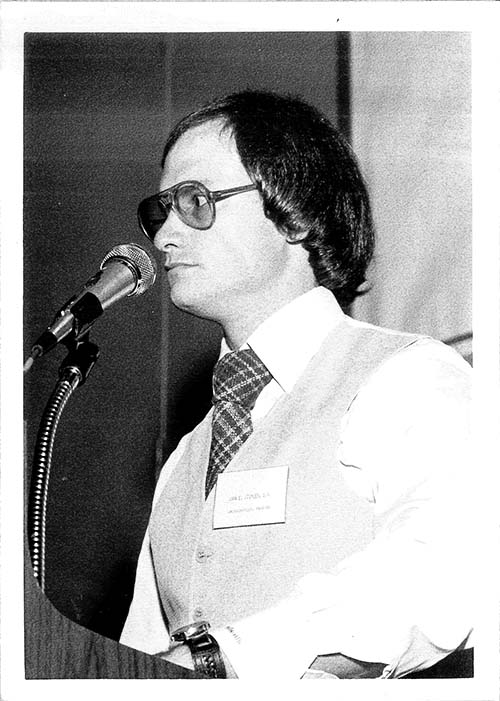
1978
“We were working quite hard back then (when I was president), trying to develop a specialty board,” said Frederic Wurtzel (FCEP President 1978-79). “And like a lot of things in medicine, it was political.
“At the winter Symposium that year of ACEP – it was held at Innisbrook; we were the host chapter – the Council was going to take a vote and send that to the Board, who had agreed to pretty much follow it. If the Council voted to break off and have an independent Board, not really recognized by the other boards perhaps, that’s what we were going to do. I can remember going from chapter to chapter with Drs. Rick Slevenski, Jay Edelberg and all the other guys saying, ‘look, if we break off now, we’re done!‘
“So the Florida Chapter wrote the resolution saying, ‘ACEP should continue to work aggressively within the family of medicine, ABMS, and get our board on equal footing with the others. And it was a floor fight for a while. Now, we have a seat at the table, as they say.”
1979
ABEM receives specialty board approval as a conjoined board
The independent ABEM receives specialty board approval as the 23rd medical specialty in the U.S. from the American Board of Medical Specialties (ABMS) – but as a conjoined board
The 1980s
“I had been involved in the California ACEP, which was a little different than it was here,” said Dr. David Orban (FCEP President 1990-91). “(The Florida Chapter) ran really good meetings, and had a national reputation for running excellent meetings both for physicians, but also excellent meetings for paramedics.”
Pictured: 1980 CLINCON
1980
ABEM certifies its first emergency medicine physicians
1982
Dr. Jay Edelberg becomes the first FCEP president (1982-83) to be trained by an emergency medicine residency program
“I spent a lot of time you know, meeting with EMS. I’d break bread with them in their fire stations, and I’d ride with them as they’re intubating people on the interstate or whatever.” – Dr. Jay Edelberg (pictured)
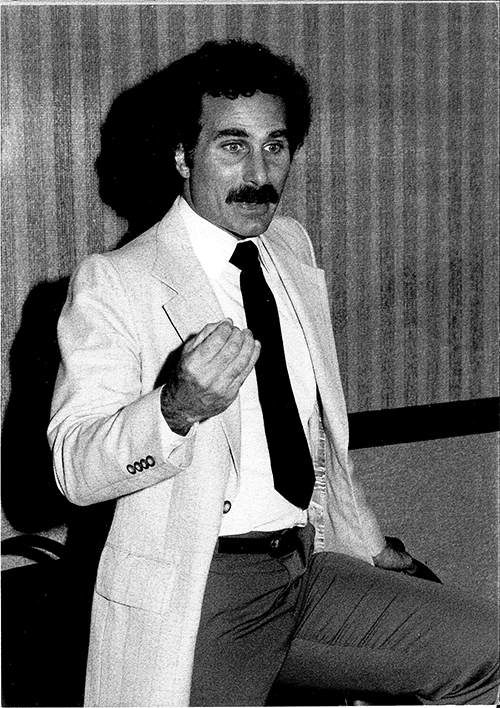
1983
Bill Shearer International ALS/BLS Competition
“In the past, we the practice of emergency medicine did not exist,” said Dr. Richard Slevinski (FCEP president 1982-83). “As an early Board Member and President of Florida ACEP, I had the privilege of helping to define our practice, to change the structure of medicine. We developed the concepts of EMS Medical Direction, Trauma Centers, our Board Exams, and we earned respect from our specialty colleagues. These were hard fought battles. We spent our own time and money to define the political and intellectual boundaries of emergency medicine as it is today. I am so proud and lucky to have been a part of this.”
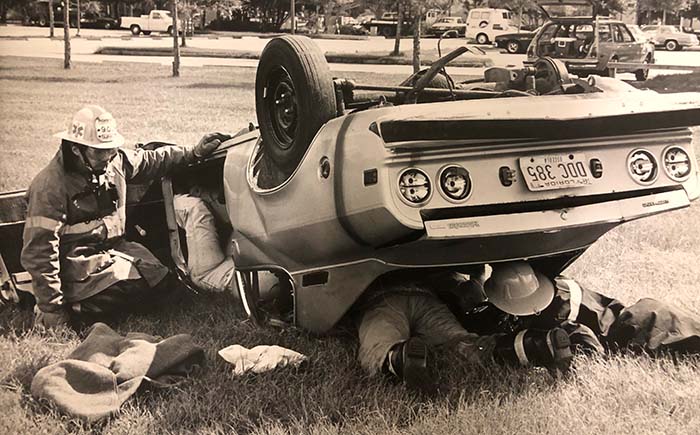
1986
The federal Emergency Medical Treatment & Labor Act (EMTALA) is enacted
1987
The first Symposium by the Sea conference, offering free CME and hosting the annual Board meeting of elections, was held in Marco Island. Beth Brunner also began her 33-year career as FCEP’s executive director this year
1988
“When I came to Orlando, I had, arguably, the best scrubs collection on the planet,” said Dr. Jay Falk (FCEP president 2015-16). “So I come do my first clinical shift (at Orlando Regional Medical Center), and the director of the department looks at me and goes, ‘Jay, listen. You can’t wear scrubs in the emergency department.’ I go, ‘seriously?’ He said, ‘yeah – you come to work wearing a shirt and tie and a white coat, just like the rest of the doctors on the medical staff, because we have to establish ourselves as credible, physician colleagues to these people.'”
1989
A decade later, ABEM is granted “Primary Board Status” by ABMS and can now pursue the development of subspecialty certifications
The 1990s
1991: In its 20th anniversary year, the Florida Chapter of ACEP closes on its first office building, becomes the first chapter to change its name to the Florida College of Emergency Physicians, and creates the the Florida Emergency Medicine Foundation (FEMF) as a separate entity from FCEP to house educational and research initiatives
1992
ABEM approves the first two subspecialty certifications: medical toxicology and sports medicine
1995
“The two things I remember being most significant (during my presidency) were the issue of CHEC funding for EM residencies and managed care denial of payments for ED visits/prudent layperson standard,” said Dr. Harvey Rohlwing Jr. (FCEP president 1995-96). “This was the year we finally passed the HMO law, thanks to all of our FCEP leaders and our champion, Rep. Ben Graber, MD.”
1996
FEMF receives ACGME accreditation as a primary sponsor of continuing medical education for physicians
1997
ACEP passes a resolution requiring members to be board-certifed in emergency medicine or have completed an emergency medicine residency program
1999
“FCEP stood behind me while I was president of the college and, although we failed ultimately in stopping the helmet law repeal, FCEP was instrumental in combining our efforts with the FHA so our voice could be heard by as many as possible,” said Dr. Robert Tober (FCEP president 1999-2000). “FCEP provided all emergency physicians in the state a means of expression, communication and comradery that was so important to all of our careers and sense of well-being in our tough profession.”
The 2000s
2001: In its 30th anniversary year, FEMF becomes the third organization to receive accreditation from the CECBEMS (now CAPCE) to provide CEU’s to pre-hospital care providers across the nation.
2006
FCEP celebrates its 35th Anniversary at the Past-Presidents’ Luncheon
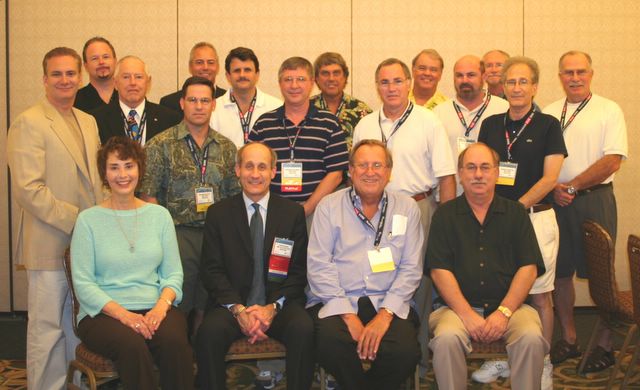
2011
“The proudest time for me as FCEP President was establishing the Leadership Academy and getting our up and comers involved in leadership,” said Dr. Vidor Friedman (FCEP president 2011-12). “I am always amazed at the significance of our legislative presence in Tallahassee and with all of the other members of the House of Medicine.”
2012
“We expanded our membership focus and kicked off the inaugural year of the Florida Leadership Academy,” said Dr. Kelly Gray-Eurom (FCEP president 2012-13). “We became the 7th largest chapter and sent 15 Councillors to represent the interests of Florida emergency physicians at the annual Council Meeting in Denver this October.”
2014
“After many years of planning, we finally picked up shovels and broke ground on the new building,” said Dr. Michael Lozano, Jr. (FCEP President 2013-14). “The old space was full of memories of good times spent together, but its useful days had run out.”
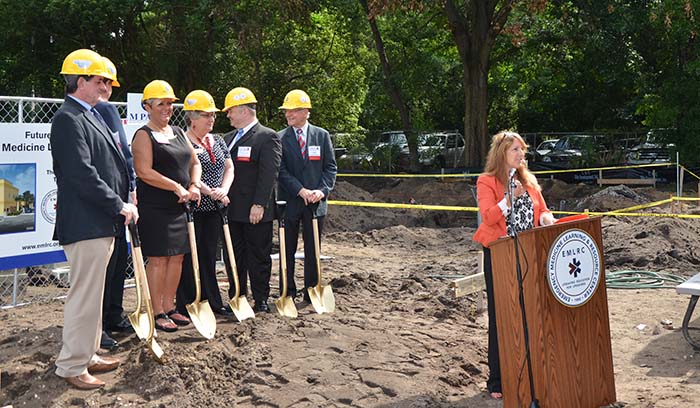
January 2015
FCEP moves into the Emergency Medicine Learning & Resource Center (EMLRC)
“My year was also memorable for the tremendous growth in the educational programs offered by the college and the foundation.” – Dr. Ashley Booth-Norse (FCEP President 2014-15)
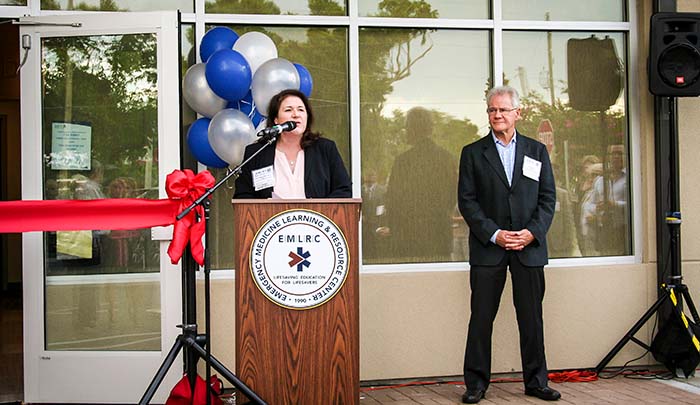
2016
Six new emergency medicine residency programs receive accreditation and accept their first classes of residents (the Class of 2019)
2019
FCEP sends a record-breaking 21 Councillors to ACEP’s Scientific Assembly
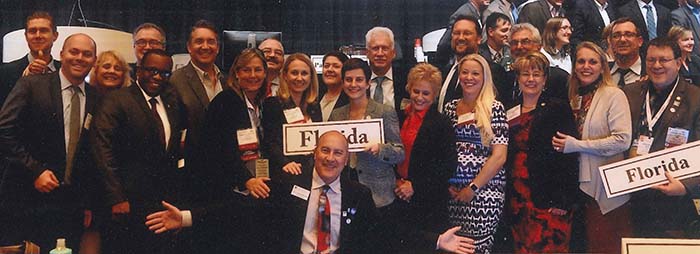
2020
The COVID-19 pandemic becomes the primary focus of everyone’s lives
Emergency physicians around the world are suddenly in the spotlight as they bring stories from the ER to the public and discover lifesaving techniques against COVID-19. Executive director Jonathan Dolan begins his career at FCEP.
August 6, 2021
FCEP celebrates its 50th Anniversary and first in-person conference since the pandemic began at the Naples Grande Beach Resort
